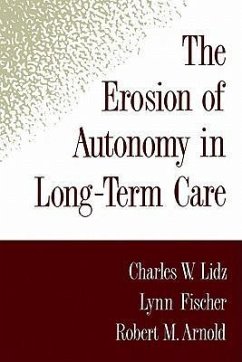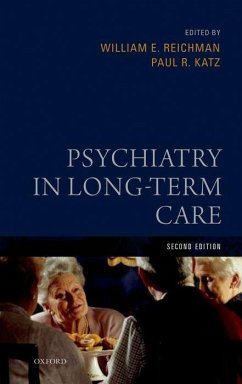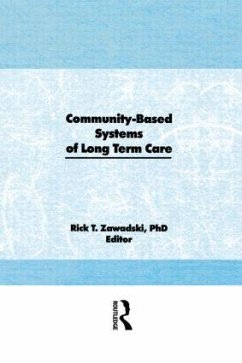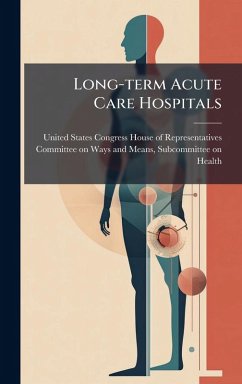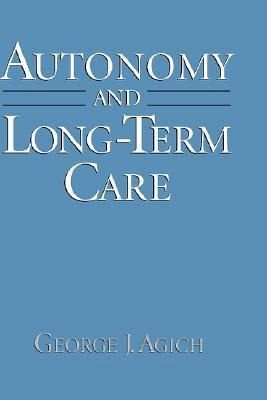
Autonomy and Long-Term Care
Versandkostenfrei!
Versandfertig in 1-2 Wochen
75,99 €
inkl. MwSt.

PAYBACK Punkte
38 °P sammeln!
The realities and myths of long-term care and the challenges it poses for the ethics of autonomy are analysed in this perceptive work. The author argues that the standard view of autonomy as non-interference and independence has limited applicability for long term care. He offers an account of 'actual autonomy' in which individuals are perceived to be interdependent with others and the world. Hence, actual autonomy stresses the developmental and social nature of the individual. Through a phenomenological analysis of long term care, the author develops an ethical framework for it by showing how autonomy is actually manifest in certain structural features of the social world of long term care. The work concludes wuth a discussion of the advantages associated with phenomenologically inspired treatment of actual autonomy for the ethics of long term care. Drawing on the rich sociological and anthropological literature on ageing and long term care, this timely work is essential reading for all biomedical ethicists and professionals providing long term care.
The realities and misconceptions of long-term care and the challenges it presents for the ethics of autonomy are analyzed in this perceptive work. While defending the concept of autonomy, the author argues that the standard view of autonomy as non-interference and independence has only a limited applicability for long-term care. He explains that autonomy should be understood as a comprehensiveness that defines the overall course of a person's life rather than as a way of responding to an isolated situation. Agich distinguishes actual and ideal autonomy and argues that actual autonomy is better revealed in the everyday experiences of long-term care than in dramatic, conflict-ridden paradigm situations such as decisions to institutionalize, to initiate aggressive treatments, or to withhold or to withdraw life-sustaining treatments. Through a phenomenological analysis of long-term care, he develops an ethical framework for it by showing how autonomy is actually manifest in certain structural features of the social world of long-term care. Throughout this timely work, the rich sociological and anthropological literature on aging and long-term care is referenced and the practical ethical questions of promoting and enhancing the exercise of autonomy are addressed.



